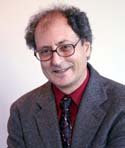The question asked repeatedly since the exposure of the Bernie Madoff fraud: How could so many smart money-savvy people be fooled for so long? What I find especially troubling is that the answer to that question is mundane. The techniques for enticing investors into a Ponzi scheme are timeless and trite.
Early in my adult life, a "buyer's club" enticed my wife and I to visit. A salesman subjected us to a high-pressure pitch to join. The proposition was that for a $1000 one-time membership fee, a lifetime of “savings” totaling hundreds of thousands of dollars would be ours. Everything we would ever need—appliances, furniture, electronics, even cars—would be available to us at greatly reduced prices.
Of course the offer came with conditions. The invitation to join the club was exclusive and would not be repeated. Although, the price would be reduced if we “nominated” friends and family for membership. All merchandise ordered had to be prepaid and members were responsible for the shipping costs. The catalogs detailing the merchandise and actual prices were kept secret and would not be revealed until we joined. The salesman explained that if it became widely known just how low club prices were no one would shop in a retail store again. The local economy would collapse. The reason that these fantastic discounts were available is that the club profited only from membership fees, not from merchandise sales.
The last statement tipped me that this was a Ponzi scheme and I walked out. If the club profited only from membership sales that would mean that as soon as the club sold all the memberships possible it would fold. The “lifetime” membership referred to the club’s lifetime, not mine. Besides there is no reason to believe that I am special, that my money is special, or that my friends and family should be granted special buying rights denied to others. In my book The Two Headed Quarter I call this line of reasoning the “mediocrity assumption.” As much as I would like to believe that my circumstances and opportunities are special and unique, they are not. Any salesperson trying to convince me otherwise is lying.
In reading about Madoff, I am struck by all the parallels to my buyer’s club experience. The aura of exclusiveness he created, the network of friends and families, the secrecy about what he did, and most striking—that he did not charge for his services—all telltale signs of a Ponzi scheme. But, he preyed on the wealthy and famous so that it was much easier to convince his marks that they were special. I think the scam would have failed with ordinary investors who know that they are not special. Madoff knew, that ironically, those most likely to fall for his scheme would be the kind of people thought least likely to be taken in by a such a scam.
Of course in the end Ponzi schemes fail because of the math. Security analyst and graduate of my institution—Loyola College—Harry Markopolos alerted the SEC in 1999 that Madoff’s investment success made no mathematical sense. In 2005 he sent a 19-page paper to the SEC titled: “The World's Largest Hedge Fund is a Fraud.” While the document is technical, the fundamental numbers on which it is based are telling. You don’t need a background in forensic accounting to realize what is going on. All you need to do is apply the mediocrity assumption. His reasoning is a classic use of that assumption. Markopolos is quoted as saying:
"No Major League Baseball hitter bats .960, no NFL team has ever gone 96 wins and only 4 losses over a 100-game span, and you can bet everything you own that no money manager is up 96 percent of the months either."
Unfortunately many people bet everything they owned that Madoff could be up 96% of the time.
A few months after I said no to the offer from the “buyer’s club” it closed its doors and its managers disappeared. The local news reported that the State Attorney General was investigating. Many people with “lifetime” memberships prepaid for merchandise they never received. That was 24 years ago. I am still alive. The same techniques for deceiving people are still in use and continue to be effective.
Joseph Ganem is a physicist and author of the award-winning The Two Headed Quarter: How to See Through Deceptive Numbers and Save Money on Everything You Buy
Subscribe to:
Post Comments (Atom)




No comments:
Post a Comment